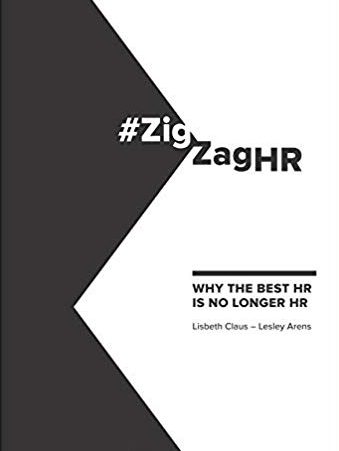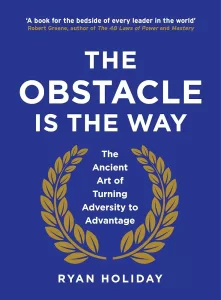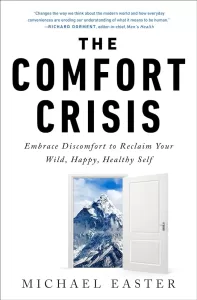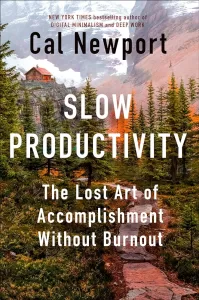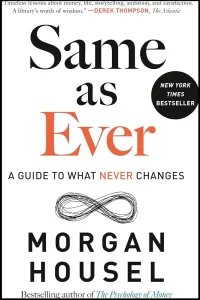Book Review: “#ZigZagHR”
Book: #ZigZagHR by Lisbeth Claus and Lesley Arens
Reviewer: Bobby Powers
My Thoughts: 8 of 10
I usually find HR books to be boring, but #ZigZagHR was engaging and thought-provoking. Claus and Arens have drawn from the work of countless other industry experts to explain how and why the world of HR must change in order to stay relevant. This book gave me dozens of insights to improve the way I approach my work in Learning & Development and organizational design. Any business executive or HR professional can benefit from reading this book.
What I Learned from the Book
Automation, globalization, artificial intelligence, and the rise of the gig economy are rapidly changing the business world. HR is not immune to those changes. Anyone working in Human Resources today will need to reinvent their role by taking some elements of old-school, traditional HR and combining them with new technology. They must borrow from advancements in fields like AI and data analytics to help companies succeed, fight for the best talent, and keep employees engaged.
Selected Quotes and Ideas from the Book
The Current State of Human Resources
- "It is rather sobering that companies invest a lot of time, money, and energy in the creation of the ultimate (external) customer experience, but do not seem to translate that in the internal (customer) experience of their employees."
- "HR is still too much caught between the expectations and needs of the employees and the priorities of the employer, failing to offer a compelling answer to either one."
- "HR is not immune to the disruptive forces of innovation of demography, information technology, and globalization."
How the World Is Changing
- "Trends in the U.S. and Europe clearly show the number of freelancers and contract workers with a hybrid status will only increase."
- "In the U.S., it is predicted that in the next decades, contract work will represent the majority of the American workforce. This already holds true for millennials who are 50% freelancers (although often as a second job). The growth of the American freelance workforce is three times faster than the growth of the traditional workforce."
- "[W]e have to abandon the illusion of job security and evolve to work security."
- "Society is now looking at employers to play a larger role in solving some of society's social problems that affect work and the workers--whether it is sexual harassment, transgender and gay rights, healthcare, immigration, racism, mental health, or basic income. While HR cannot alone solve all these problems, they must encourage their companies to play a greater role in the societal debate."
- "If the rate of change on the outside exceeds the rate of change on the inside, the end is near." -Jack Welch
The Future of HR
- "We predict with conviction that in the near future, half of what HR does in terms of transactions will be automated and that 80% of what HR people do today, they will no longer be doing in the near future. This near future is the next two to five years."
- "There are two ways to look at this new reality: with a negative lens where one sees a fateful dystopia with an unemployed society, an unbridgeable gap between the haves and the have nots, between well paying and miserable jobs, and HR limited to transactional activities. With a positive lens, the focus is on opportunities: if 80% of the administrative and routine HR tasks are automated and taken over by algorithms, it frees up time for HR to focus on people activities where HR is better than computers. If 80% of HR's daily tactical tasks are no longer relevant, it frees up time to support tasks that have greater strategic value. Because of technology, we are able to make better data-driven (read: evidence-based) decisions. We can personalize HR and bring the H back in HR."
- "[T]his is a new era and the time is now to reinvent HR."
- "Live in the future, then build what's missing." -Paul Graham
- "Considering that many jobs will disappear or will fundamentally change in content at a faster tempo, it is clear that only agile organizations will survive this disruption."
- "What today is considered a revolutionary trend or weird practices in HR is perhaps next year's leading practice."
- "Imagine...A future worker applies for a job without a resume or curriculum vitae and is hired without being interviewed by a person. Smart algorithms predict who is likely to leave your company and when; chatbots answer HR generalist questions; employees have total flexibility as to when and where they work and have unlimited paid time off!"
ZigZagging to Adapt to the Changing HR Landscape
- "To replace the current (read: obsolete) paradigm with a fundamentally new talent management vision, HR must borrow from other management disciplines."
- "We are not proposing an all-or-nothing approach to either traditional or innovate model, but a #ZigZagHR-Model where HR #ZigZags between traditional (generally accepted) and more progressive (innovative) practices based on the situational context of the firm."
- "HR professionals must complement their base HR competencies with skills and tools from other management disciplines and adopt an augmented #ZigZagHR-Stack that includes design thinking (strategy), behavioral economics (where psychology and economics meet), agile management (flexible project management), and analytics (data analysis and management science)."
- "In today's progressive workplaces, HR is not forced into the role of policing. The pendulum is definitely swinging toward trusting that people will do the right thing rather than controlling for the few 'bad apples' that may force the policing of work practices."
- "Rather than attempting to control and regulate behaviors, employees should have 'freedom within a framework.' This framework must be supported with substantive resources (including onboarding, training, development, managerial support, etc.) so that employees can understand the limits of their freedom and exercise freedom with responsibilities. This allows for a hands-off approach where employees are trusted rather than controlled and can do their best work."
Think you’d like this book?
Other books you may enjoy:
- Work Rules by Laszlo Bock
- The Employee Experience Advantage by Jacob Moran
Other notable books by the authors:
- International Human Resource Management (3rd Edition) by Dennis Briscoe, Randall Schuler, and Lisbeth Claus
Want to become a stronger leader?
Sign up to get my exclusive
10-page guide for leaders and learners.
